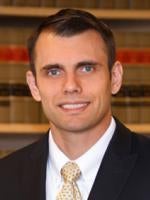There were 13 candidates in the running for the presidency in Costa Rica until last Sunday, when Costa Ricans narrowed the pool two candidates. Among the 13 presidential candidates were several lawyers who are also politicians, including:
- Antonio Álvarez (National Liberation Party) – Lawyer, businessman and veteran legislator who twice served as President of the Costa Rican Legislative Assembly (1995-1996; 2016-2017). As a lawmaker, he is known for having promoted legislation against sexual harassment, domestic violence, smoking, and protecting people with disabilities.
- Juan Diego Castro (National Integration) – A defense lawyer by profession, Castro served as Minister of Public Safety (1994-1997) and later Minister of Justice (1996-1997). Castro positioned himself as an anti-establishment and anti-corruption candidate.
- Rodolfo Piza (Social Christian Unity Party) – A lawyer, former justice of the Costa Rican Supreme Court (2009-2013), and Executive President of the Costa Rican Department of Social Security (1998-2002), Piza was the candidate of the Social Christian Unity Party.
- Otto Guevara (Libertarian Movement Party) – Lawyer, professor, and founder of the Libertarian Movement Party. He previously served in the legislature between 1998-2002 and again since 2014.
None of the aforementioned, however, remain in the presidential race. Last Sunday, a quarter of Costa Ricans went to the polling booths and voted for Fabricio Alvarado, a non-politician who is a former television anchor and influential evangelical singer. Another 22% voted for Carlos Alvarado, a politician who previously served as Minister of Labor and Social Security (2016-2017) and secured the nomination of the Citizens’ Action Party, which is the political party of outgoing Costa Rican President Luis Guillermo Solís.
Fabricio Alvarado’s rise in the polls is largely attributed to his campaign rhetoric against an Inter-American Court of Human Rights (IACHR) advisory opinion that notes member states “must recognize and guarantee all the rights that are derived from a family bond between people of the same sex.”[1] His meteoric rise appears to have tapped a dormant wellspring of conservatism among Costa Rica’s voters that heeded the call to defend the country’s sovereignty against external foreign tribunal decisions.
Carlos Alvarado’s rise to second place is also notable, particularly since January polls had him lagging behind other known politician candidates – Juan Diego Castro (16%), Antonio Álvarez (11%), and Rodolfo Piza.[2] He may have received a bump from those voters that are alarmed by the strident tenor of Fabricio Alvarado’s campaign. Carlos Alvarado also supports the IACHR’s decision on same-sex couples.
Despite similar last names, the two candidates are not related. Costa Ricans are currently scheduled to go to the polls again on April 1, to determine which of the final two candidates – Carlos Alvarado, an establishment candidate, or Fabricio Alvarado, a populist choice – will be their next president. This date might change, however, because April 1 falls on Easter Sunday and there are currently several legal efforts underway to change the run-off election date.
[2] http://qcostarica.com/2018-presidential-elections-headed-for-second-round/





 />i
/>i

